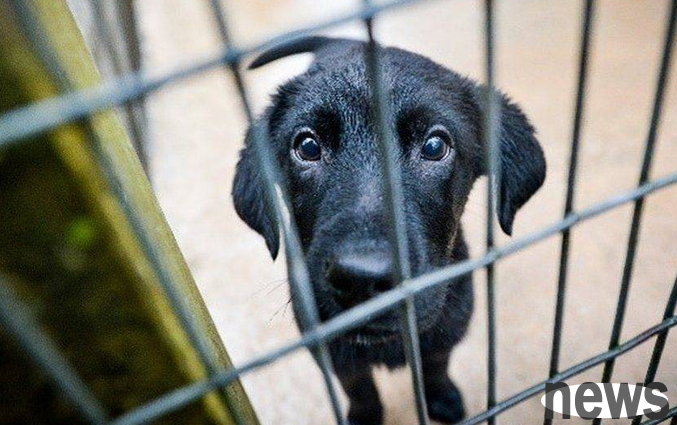The euthanasia of Taiwan authorities in China's euthanized 154 pet cats smuggled recently. The incident was caused by Taiwan Customs recently seized a smuggled fishing boat and found 6 cages of 154 precious pet cats, including Russian blue cats,...
The euthanasia of Taiwan authorities in China's euthanized 154 pet cats smuggled recently. The incident was caused by Taiwan Customs recently seized a smuggled fishing boat and found 6 cages of 154 precious pet cats, including Russian blue cats, ragdolls, Persian cats, American shorts, British shorts and other breeds. On the 21st, the Taiwan authorities implemented "euthanized" all 154 cats on the 21st based on the "operation procedures for smuggling and confiscated animals and their supplies."
This move has aroused dissatisfaction among a large number of netizens. People accused the Taiwanese authorities of being too cruel, and the 154 pet cats should have a more humane solution.
So the question is, is it appropriate to euthanize pet cats? What is a more humane solution?

For living animals smuggled into the country, the International Convention on International Trade in Endangered Wild Fauna and Flora (hereinafter referred to as the "Washington Convention") promulgated in 1975. The Convention clearly stipulates that if the customs of each country (region) seize smuggled endangered animals, if the country (region) can be traced, the country (region) must pay the shipping fee to pick up the animals; if it cannot be identified or returned, it will be properly contained by the country (region) of entry.
However, here we are talking about endangered animals, and there are no specific regulations on pet cats and dogs. But there is another saying in the Convention, "If smuggling animals is not a list of endangered controlled species in the Convention, the treatment method will be stipulated by each country (region) on its own."
In other words, how to deal with non-endangered pets depends entirely on the laws and regulations of each country (region).
From this perspective, it seems that nothing wrong with euthanizing 154 pet cats in accordance with the relevant provisions of the "Operational Procedure for Smuggling and Confined Animals and Its Supplies" on the grounds of preventing epidemic prevention and prevention of rabies.
In fact, euthanizing smuggled animals is one of the common practices internationally, and many countries (regions) do this. But there are also some countries (regions) that adopt the "humane" method that netizens call.
For example, in the UK and Japan, the general way to deal with seized smuggled pets is: first isolate and quarantine to ensure that the pet is healthy and does not have rabies, and then hand it over to private institutions to receive and raise.
Before the Taiwanese authorities culled the 154 cats, an animal protection organization actually proposed that they could spend money to quarantine the pet cats and then store them after confirming their health.
Taiwan's cautious approach may be related to the ineffective crackdown on smuggling more than 20 years ago, resulting in heavy losses in foot-and-mouth disease in Taiwan's livestock.
On the other hand, the rigorousness of handling pet smuggling in various countries (regions) is actually related to the so-called "rabies epidemic area". In order to prevent rabies with high mortality rates, many countries (regions) will correspond to different epidemic prevention procedures or treatment methods according to the severity of rabies in other countries.
For example, in Australia, where ecologically fragile, countries around the world are divided into "unrecognized categories" and "recognized categories" based on whether there is rabies and their severity -
Pets in countries (regions) who have "unrecognized categories" cannot do even if they have quarantine certificates. They must live in countries (regions) for a period of time and undergo various inspections and quarantines.
In 2016, Aimeber, the wife of famous Hollywood movie star Johnny Depp, took two pet dogs on a private plane to Australia for a visit without any quarantine procedures.
According to Australian law, Aimeber once faced a maximum of ten years of prison, and the two pet dogs may also be euthanized. Finally, under the operation of a powerful lawyer team, the Depps and his wife were able to bring their pet dogs back to the United States after paying a huge fine, but Aimeber was permanently banned from entering the country by Australian authorities.

In June this year, the United States banned dogs from 113 "high-risk countries" of rabies from entering the country for a year on the grounds of preventing and controlling rabies. Regardless of whether there is a quarantine certificate or not, it is impossible to even go to a "high-risk country" and return. It is completely implemented with one-size-fits-all.
It can be seen that there is no unified standard for each country (region) when dealing with pet smuggling.
Of course, the controversy over Taiwan's culling pet cats this time is that euthanizing 154 pet cats at one time has a great sensory impact. I searched for related news from other parts of the world and never saw a similar case of killing hundreds of pets in one go.
Animal protection personnel pointed out that the "operation procedures for handling smuggling and concealed animals and their supplies" are administrative rules and there is room for modification. Given that the number of pet cats is large this time, law enforcement discretion should be given flexibility.
No matter what, there is no killing without buying or selling. Cutting off the chain of pets from the root is the best way to protect animals.